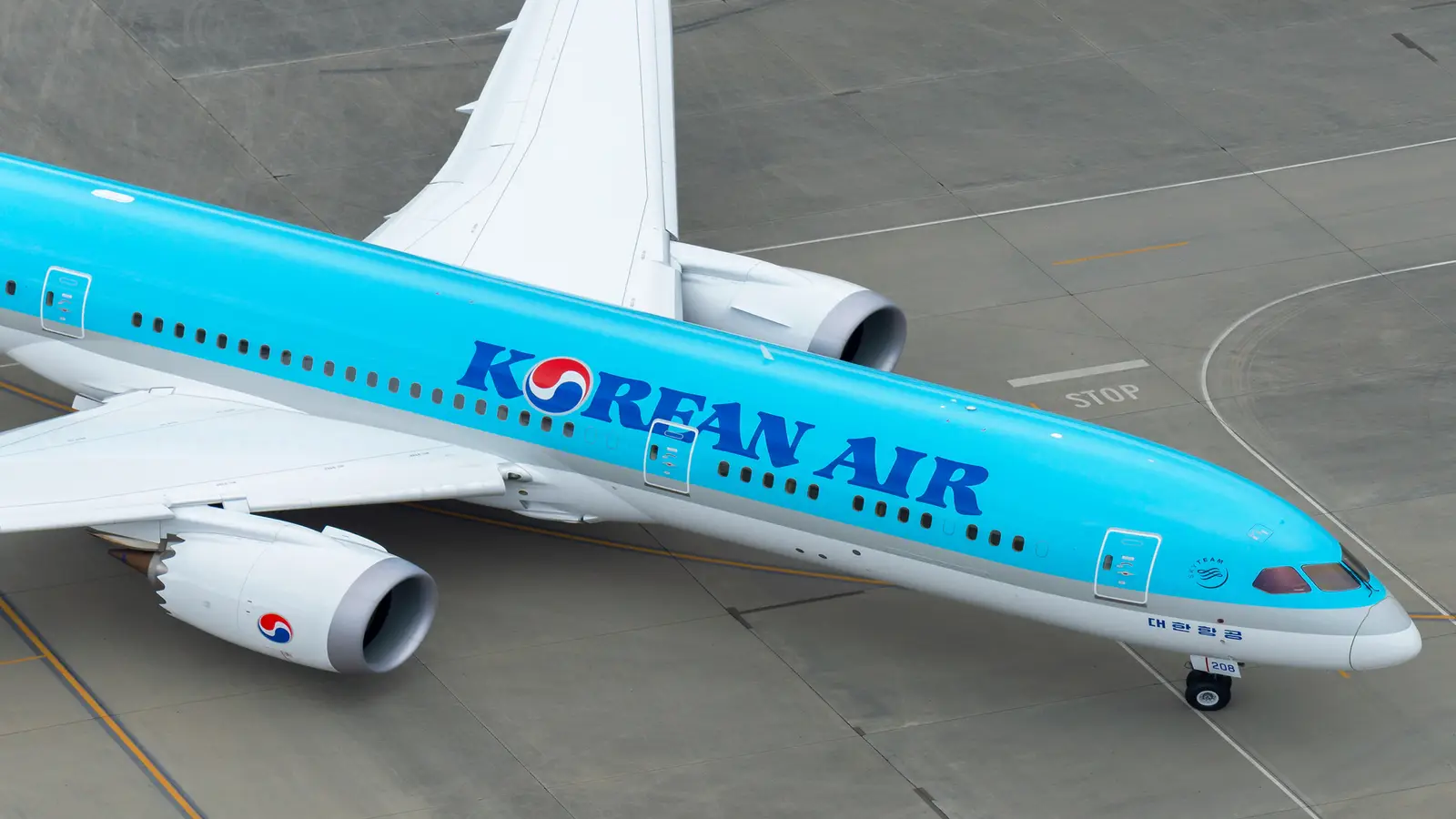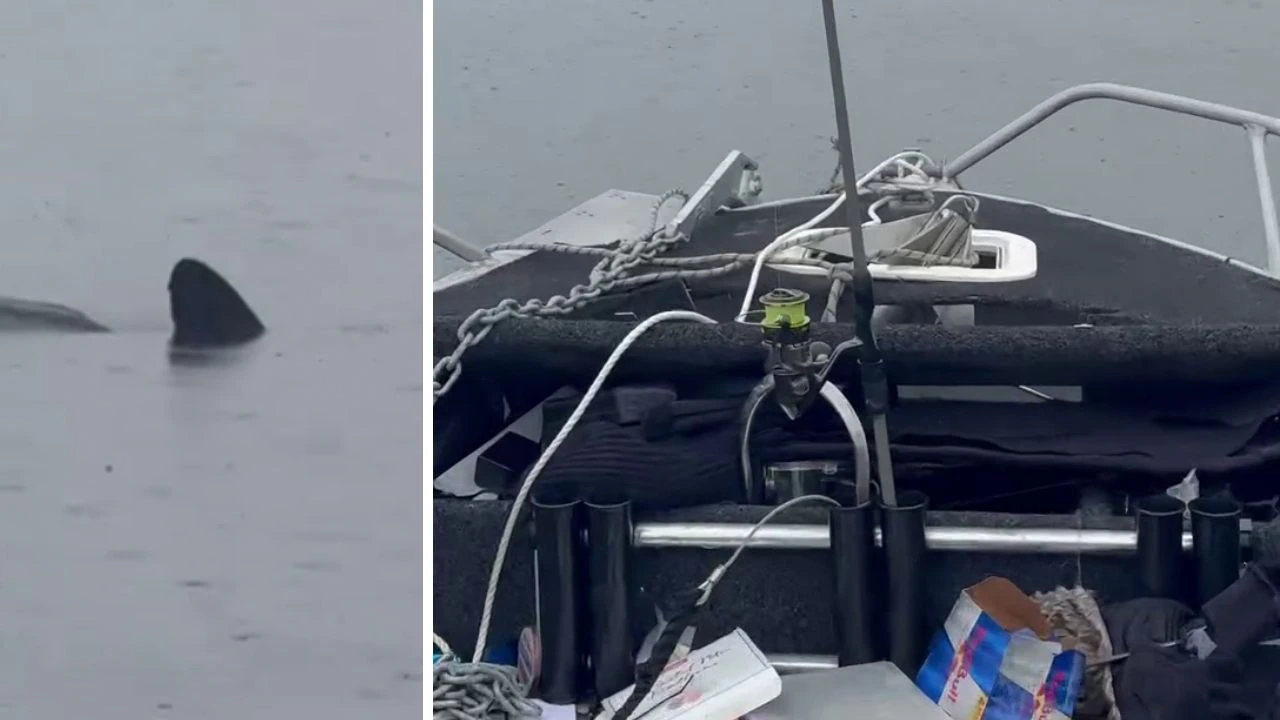
Korean Air will partner with Boeing to enhance collaboration in predictive maintenance, helping to foresee issues with its aircraft before they occur. Korean Air is a major Boeing customer, with over 100 of the US-manufactured planes in its fleet and more on order.
The Seoul-based carrier leverages predictive maintenance to keep its planes flying and proactively manage its fleet. It also collaborates with other OEMs and technology firms, including Airbus and Collins Aerospace, for predictive maintenance. The deal with Boeing is set to enhance its MRO capabilities.
Enhancing Collaboration In Maintenance
Korean Air and Boeing signed the strategic agreement on September 17 at the MRO Asia-Pacific 2025 Conference in Singapore. The airline is already an established leader in the field, having set up a dedicated Predictive Maintenance Team in August 2023. It currently utilizes an in-house developed operational solution, providing a robust foundation for collaboration.
The partnership with Boeing will be centered around the advancement of data-driven maintenance methodologies. The two companies will collaborate to analyze fleet-wide operational data to forecast component health. They aim to enhance operational readiness, maximize aircraft availability, and reduce maintenance costs and flight disruptions, ensuring maximum fleet reliability. Korean Air Senior Vice President and Head of Maintenance and Engineering Chan Woo Jung said,
“Korean Air has made substantial progress in enhancing fleet reliability through our Smart MRO strategy, specifically by leveraging predictive maintenance. This strategic collaboration with Boeing will build on that success, taking our capabilities to the next level.”
A Growing Fleet of Boeing Aircraft
Korean Air has been a Boeing customer for over 50 years and remains a strong partner for the US manufacturer. The carrier continues to expand its Boeing fleet and will leverage the new partnership to enhance maintenance operations. Boeing and Korean will work together to integrate additional technologies and define the next-generation best practices. The airline remains committed to ensuring its aircraft are reliable and readily available.
Korean Air will bring its extensive operational experience, while Boeing utilizes its engineering expertise and advanced technical operations software, fostering a mutually beneficial collaboration. According to ch-aviation, Korean Air has a fleet of 165 active and inactive aircraft, including 110 Boeing aircraft. Its Boeing fleet comprises the following types:
Last month, Korean committed to purchasing 103 new Boeing aircraft, including 50 737-10s, 25 787-10s, 20 777-9s, and eight 777-8 Freighters. The commitment will be the airline’s largest-ever order and Boeing’s largest widebody order from an Asian carrier. The order will help the airline modernize its fleet and support its growth as it merges with Asiana Airlines. When finalized, the deal will mark Korean Air’s first order for the 777-8F.
Working With Various Manufacturers
Korean Air set up its predictive maintenance team two years ago to help prevent unexpected groundings by identifying potential issues before they occurred. Shortly after setting up the team, the airline forged a partnership with Collins Aerospace, an RTX business, to use Collins’ Ascentia Prognostic and Health Management (PHM) solution on its Boeing 787s. The cloud-based solution utilizes advanced data analytics and machine learning algorithms to help operators improve maintenance operations.
Korean Air also signed an agreement with European manufacturer Airbus, selecting the Airbus Skywise Predictive Maintenance + (S.PM+) and Skywise Health Monitoring (S.HM) digital solutions. Both solutions harness deep and advanced aircraft information, prioritizing foresight over reaction. As such, Korean Air can proactively anticipate potential failures and mitigate Aircraft on Ground (AOG) incidents, reducing unpredictability and increasing cost savings.
The agreement covers the airline’s entire Airbus fleet, which comprises ten Airbus A220s, 16 A321neos, 18 A330s, four A350s, and six A380s. The 2024 agreement builds on the previous adoption of Skywise Core in 2021, reflecting the carrier’s commitment to enhancing its aircraft maintenance capabilities. With the recent agreement with Boeing, the carrier will increase the use of predictive maintenance solutions across its entire Airbus and Boeing fleet.



